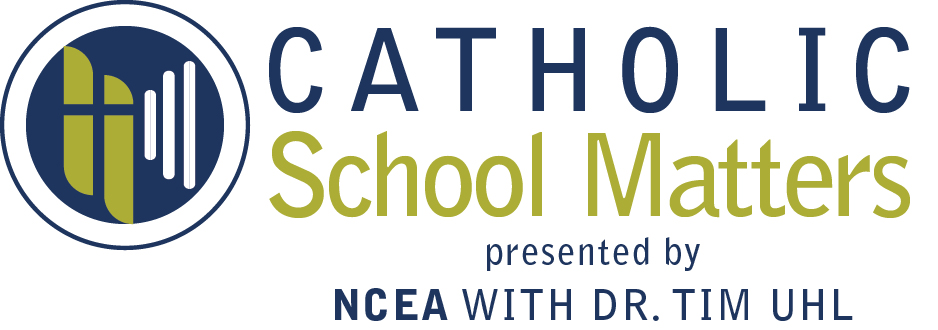What do you do with new information that contradicts what you know? Are you looking for that kind of information? Last month, NCEA presented diocesan leaders with the results from a market research project. (Podcast #80 revealed much of the information). When we heard that Hispanic parents were more discriminating consumers, for instance, it was surprising. For me, it caused me to think about how we are approaching our growing Hispanic population. But for others, the discomfort was obvious and they began to question the methodology of the project. “No parents were surveyed in our diocese,” they’d say. Or, “My region of the country was left out.”
It echoed the comments Senator John McCain made at the Naval Academy last week: “We are asleep in our echo chambers, where our views are always affirmed, and information that contradicts them is always fake,” McCain said. “We are asleep in our polarized politics, which exaggerates our differences and looks for scapegoats instead of answers, and insist we get all our way all the time in a system of government based on compromise and principled cooperation and restraint.” We have to seek out new information and when we hear something novel or contradictory, we have to examine it for its merits. The question, again, is what do you do with new information that challenges your assumptions?
I don’t believe that we do enough to challenge their beliefs and assumptions. In other words, we’re afraid to learn. It’s natural. We keep operating out of our practiced mental models.
Perhaps the problem is that new information is difficult to access. To that end, I’m presenting a special issue focusing on this fall’s issue of the Journal of Catholic Education. There is relevant information and I encourage everyone to find one article that interests you. This is difficult stuff. Trust me, I’m used to Internet reading where the articles are designed for shorter and shorter attention spans. But we need to expand our zone of proximal development and read something that stretches our intellectual limits. I started reading these articles and then discovered the special issue focusing on serving Hispanic students which I also recommend.
This week I’m publishing articles from the Journal of Catholic Education’s fall issue. It’s often difficult to find applicable research. My guess is that most of us don’t know where to look. So I figured this was a good place to start. Please recognize that for each of these links, you’ll have to push the “download” button to read the article.
My top 5:
- The opening address “Welcoming the Stranger” is especially apt for these difficult times. Pope Francis talks about migrants (not immigrants or emigrants) and our common history of migration. This is a great short opener and addresses two common themes in Catholic education today—how to become more accessible to students with disabilities AND Hispanic students.
- The study entitled “Who Do You Say You Are” is a great study of relationships within a Catholic school. It’s inspired me to write something for next week’s blog.
- “De Marillac Academy” is a great study of the teaching of grit and soft skills at an inner-city Catholic school.
- “Providing Access for Students with Moderate Disabilities” is a great study of a successful professional development program at a typical Catholic school. How do we get our teachers ready to serve in a more inclusive environment?
- “A Content Analysis of Catholic School Written Discipline Policies” points out that Catholic school disciplinary policies are really not different from public school policies. The need to infuse them with Catholic identity is paramount.
Have a great week!
